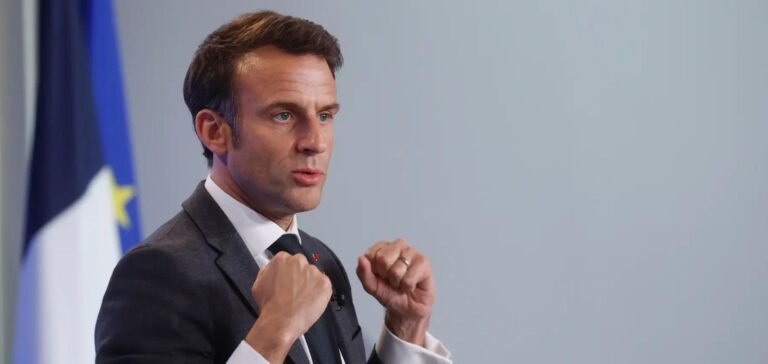Emmanuel Macron reaffirmed Friday during a visit to Dunkirk that it was not necessary to “add” environmental standards after the application of the European Union’s Green Pact, pleading for “stability” in this area. “I prefer factories that respect our European standards, which are the best, rather than those who want to add more standards” and take the risk of “having no more factories”, said the head of state.
“European Regulatory Break”
Speaking to French industry stakeholders on Thursday, Emmanuel Macron called for “a European regulatory pause,” saying that EU environmental standards were already stricter than elsewhere and that “stability” was now needed. His comments have provoked strong reactions, particularly from environmentalists. “It is absolutely irresponsible,” said the EELV deputy Sandrine Rousseau indignant Friday on franceinfo.
“Some wanted to seek polemics (and) to say anything by saying that we would like to return on what we did”, retorted the president of the Republic from Dunkirk. “I say let’s implement and complete our legislative agenda with the Commission. But let’s not add to it. “The president does not speak of suspension, but to execute the decisions already taken,” had clarified Thursday evening the Elysee in response to the reactions caused. “He has since made it clear that it is not a question of going back on the legislation being negotiated,” said Renaissance MEP Pascal Canfin, acknowledging in Le Monde “an unfortunate sentence. The explanations of the presidential camp “are not convincing. If the current standards are not applied, it is because the States listen to the lobbies” and that their European policy lacks ambition”, criticized the LFI MP Caroline Fiat.






















